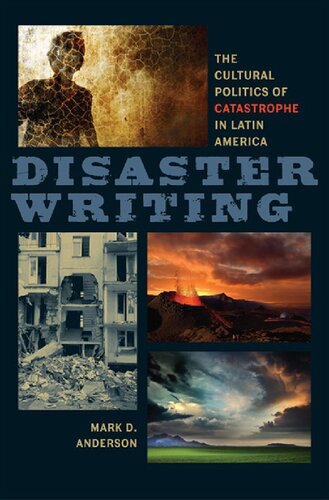

Most ebook files are in PDF format, so you can easily read them using various software such as Foxit Reader or directly on the Google Chrome browser.
Some ebook files are released by publishers in other formats such as .awz, .mobi, .epub, .fb2, etc. You may need to install specific software to read these formats on mobile/PC, such as Calibre.
Please read the tutorial at this link: https://ebookbell.com/faq
We offer FREE conversion to the popular formats you request; however, this may take some time. Therefore, right after payment, please email us, and we will try to provide the service as quickly as possible.
For some exceptional file formats or broken links (if any), please refrain from opening any disputes. Instead, email us first, and we will try to assist within a maximum of 6 hours.
EbookBell Team

0.0
0 reviewsIn the aftermath of disaster, literary and other cultural representations of the event can play a role in the renegotiation of political power. In Disaster Writing, Mark D. Anderson analyzes four natural disasters in Latin America that acquired national significance and symbolism through literary mediation: the 1930 cyclone in the Dominican Republic, volcanic eruptions in Central America, the 1985 earthquake in Mexico City, and recurring drought in northeastern Brazil.
Taking a comparative and interdisciplinary approach to the disaster narratives, Anderson explores concepts such as the social construction of risk, landscape as political and cultural geography, vulnerability as the convergence of natural hazard and social marginalization, and the cultural mediation of trauma and loss. He shows how the political and historical contexts suggest a systematic link between natural disaster and cultural politics.